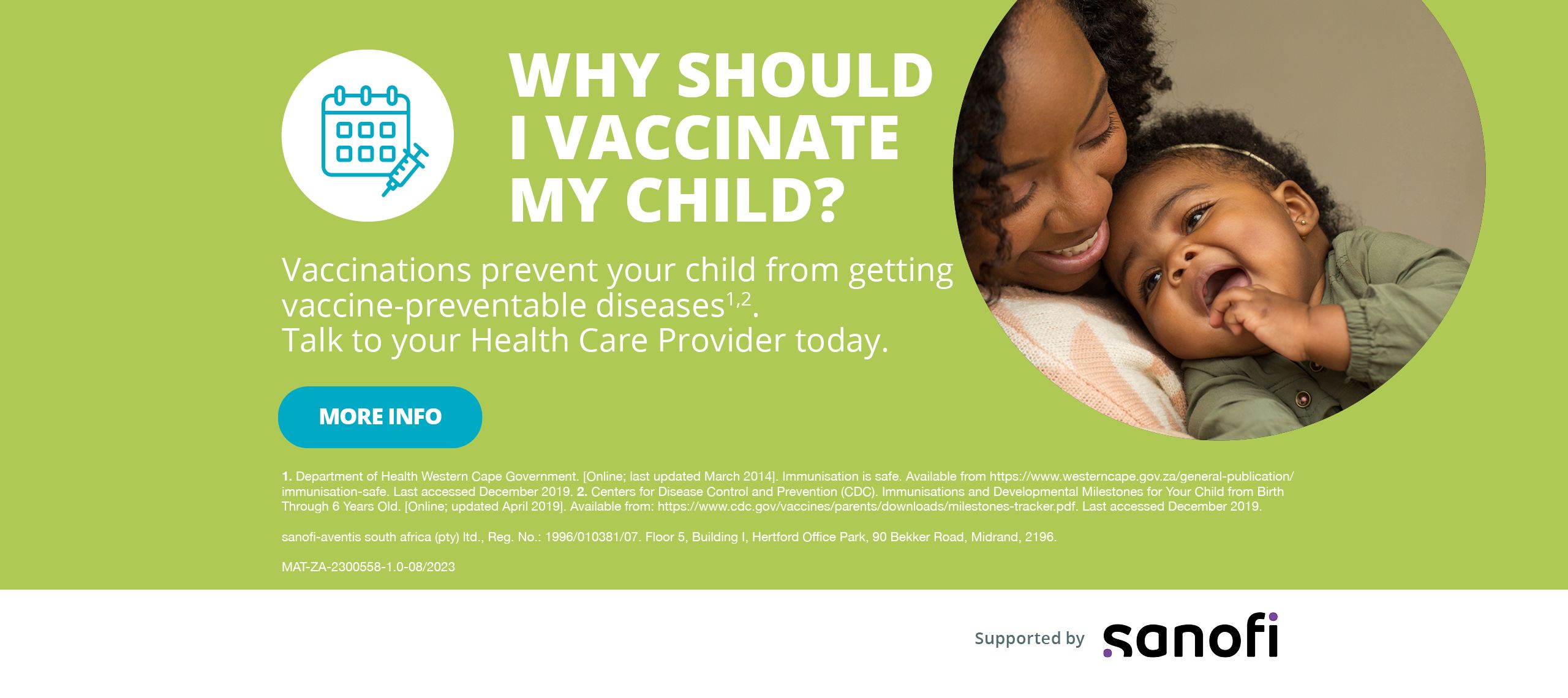The economic and social impact of illness
Illness is no small feat – here’s why you should stay on top of your vaccinations and gift your loved ones the peace of mind of proactive immunisation.

Before vaccines came about, the world was plagued with formerly common and deadly diseases like polio and the Spanish Flu1, and even after vaccines grew in number, COVID-19 reminded us that infectious diseases can spread beyond borders2 and mutate with ferocity to survive3.
The pandemic allowed us to reaffirm the importance of regular and routine vaccinations, and the significance of full immunisation4. The positive impact that vaccines have had on our global, social, and economic climate can’t be disregarded – especially for all the lives that have been spared from deadly diseases1.
As it stands, immunisation currently prevents 4 to 5 million deaths every year across all age groups5. While these numbers sound great, studies have found that an additional 1.5 million deaths could still be avoided, if vaccination coverage improves5.
While immunisation is one of the most successful public health interventions for many people, its coverage has plateaued over the past decade6. It is estimated that global coverage of some basic immunisations dropped from 86% in 2019, to 83% in 20207 and that in 2020, a global estimate of 23 million children did not receive basic vaccinations – the highest number since 20098 and the number of completely unvaccinated children also increased in 2020 by 3.7 million8.
The importance of immunisation of vaccines
During the 2022 World Immunisation Week, researchers put together the following findings that highlight the social and economic benefits of vaccinations and full immunisation:
1Saving lives through science - Thanks to scientific progress, vaccination against diseases in low- and middle-income countries has saved up to 37 million lives between 2000 and 2019. With continued global commitment, millions more can be saved by 20309.
2Protecting family stability - Vaccination helps keep them and the wider population healthy, meaning that parents need less time off work, contributing to greater economic stability for families and communities10.
3Reducing health inequalities - Evidence shows that vaccination can help reduce health inequalities in the poorest communities10.
4Supporting healthier, longer lives - Vaccines can help improve life expectancy. They help keep an aging, global population healthy and can also make a difference to the future of babies and children5,10.
5Combating drug resistance - Many infectious diseases are treated with antibiotics. Vaccination can contribute to reducing the prevalence of infectious diseases and the use of antibiotics, which helps prevent the emergence of resistant strains11.
6Creating dynamic economies - Unburdened by many vaccine-preventable diseases, healthier populations can support economic growth, which in turn, can improve the health of a population, creating a virtuous circle of progress12.

In fact, these benefits can be seen in the way that South Africa has experienced significant achievements with the introduction of the EPI (Expanded Programme of Immunisation)13. The EPI emphasised the importance of vaccinations and immunisation. Between 2005 and 2013, the death rate in South African children under 5 years of age decreased by almost 50%13. The programme also helped to eliminate the presence of the deadly polio disease in South Africa and get whooping cough under control13.
The Revised Expanded Programme on Immunisation (EPI-SA) from 2024, includes routine vaccination schedules for infants, children and pregnant women14.
Speak to your Health Care Provider about the updated routine vaccination schedule to help you and your loved ones stay protected from flu and other serious illnesses all year-round.
Read more how to prevent and protect with Sanofi:
References:
- World Health Organization (WHO). A Brief History of Vaccination. Available from: https://www.who.int/news-room/spotlight/history-of-vaccination/a-brief-history-of-vaccination. Accessed December 2023.
- UNICEF. Maintaining routine immunization services vital during the COVID-19 pandemic – WHO and UNICEF. https://www.unicef.org/eca/node/5936. Accessed December 2023.
- COVID-19. Classifications & Definitions. Available from: https://www.cdc.gov/coronavirus/2019-ncov/variants/variant-classifications.html. Accessed December 2023.
- Ota MOC, Badur S, Romano-Mazzotti L, et al. Impact of COVID-19 pandemic on routine immunization. Ann Med 2021;53(1):2286-2297.
- World Health Organization (WHO). Vaccines and Immunization. Available from: https://www.who.int/health-topics/vaccines-and-immunization#tab=tab_1. Accessed December 2023.
- World Health Organization (WHO). Immunization coverage. https://www.who.int/data/gho/data/themes/topics/immunization-coverage. Accessed December 2023.
- WUENIC. WHO/UNICEF Estimate of National Immunization Coverage. Fact Sheet 2023. https://www.paho.org/sites/default/files/2023-07/wuenic-fact-sheet-2023-v4.pdf. Accessed February 2024.
- UNICEF Press Release. COVID-19 pandemic leads to major backsliding on childhood vaccinations, new WHO, UNICEF data shows. Available from: https://www.unicef.org/press-releases/covid-19-pandemic-leads-major-backsliding-childhood-vaccinations-new-who-unicef-data. Accessed December 2023.
- Li X, Mukandavire C, Cucunubá ZM, et al. Estimating the health impact of vaccination against ten pathogens in 98 low-income and middle-income countries from 2000 to 2030: a modelling study. The Lancet 2021;397(10272):398-408.
- Rodrigues CMC, Plotkin SA. Impact of Vaccines; Health, Economic and Social Perspectives. Front Microbiol. 2020;11:1526.
- Lipsitch M, Siber GR. How Can Vaccines Contribute to Solving the Antimicrobial Resistance Problem? ASM Journals. mBio. 2016;7(3):e00428-16.
- Andre FE, Booy R, Bock HL, et al. Vaccination greatly reduces disease, disability, death, and inequity worldwide. Bull World Health Organ. 2008;86(2): 140–146.
- Dlamini NR and Maja P. The Expanded Programme on Immunisation in South Africa: A story yet to be told. SAMJ. 2016;106(7):675-677.
- Department of Health (DOH), South Africa. Expanded Programme on Immunisation – EPI (SA). Revised Immunisation Schedule from January 2024.
sanofi-aventis south africa (pty) ltd., Reg. No.: 1996/010381/07, Floor 5, Building I, Hertford Office Park, 90 Bekker Road, Midrand, 2196.
MAT-ZA-2301097-1.0 – 03/2024


